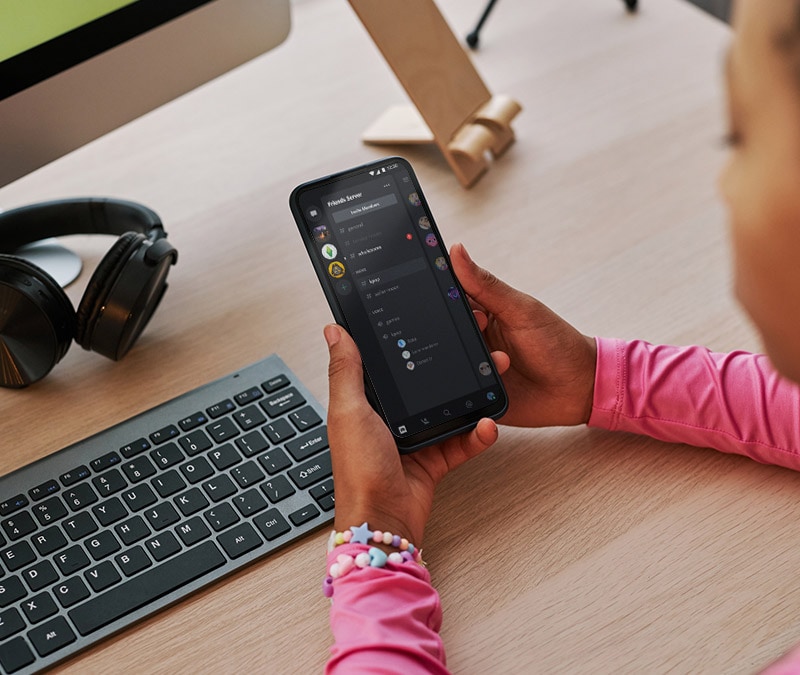Back-to-school updates—12 Cyber Safety tips for students
When prepping for the school year, keep in mind your children’s online safety. Here’s a checklist for you to go over with your kids throughout the school year.

It’s that hectic time of year—back-to-school season is upon us. As students prepare for another academic year, parents prioritize internet safety to protect their children from a myriad of online threats. From cyberbullying to phishing scams, new challenges are emerging for young internet users to face.
Here are 12 essential online safety tips to help keep your children safe this school year:
1. Update your security software.
Ensure all your children’s devices are equipped with the latest security software. Keep your online security software up to date to get real-time protection against malware, spyware, and other cyber threats. Verify that school-issued devices are also up to date.
2. Turn on automatic security updates.
Cybercriminals constantly improve their attacks, but security software developers are equally vigilant. Enable automatic updates for your antivirus software to ensure it remains effective against the latest threats.
3. Turn on automatic updates for all apps and programs on your children’s devices.
Apps and programs can be entry points for malware. Enable automatic updates on all devices to ensure they are protected with the latest security patches. This step is crucial as many cybercriminals target vulnerabilities in widely used applications.
4. Teach your kids about phishing.
Phishing attacks have grown more sophisticated, often mimicking legitimate institutions. Teach your children to recognize phishing attempts and emphasize the importance of not sharing personal information online. Explain how AI tools can both help detect and generate these phishing attempts. Norton Genie is one such tool that can help detect scams.
5. Watch for cyberbullying.
Cyberbullying remains a significant issue, with new platforms and apps providing venues for harassment. Discuss the importance of respectful online behavior with your children and encourage them to report any incidents of bullying.
6. Teach your children about strong passwords.
Strong passwords are a fundamental defense against hacking. Encourage your children to use a mix of letters, numbers, and symbols. Consider using a password manager to create and handle multiple accounts securely.
7. Consider limiting online gaming.
Excessive gaming can impact academic performance and expose children to online predators. Establish clear boundaries for gaming time and encourage other activities to balance their daily routine. Also, talk with them about the games they like to play and their online gaming communities. This may help you share their passions and be in the know of any potential red flags.
8. Watch for online predators.
The threat of online predators has grown with the increased use of social media and gaming platforms. Regularly discuss the dangers with your children and monitor their online interactions to ensure they only communicate with known contacts.
9. Have a conversation about sexting.
Sexting can lead to severe consequences, including private photos being leaked, cyberbullying, and potential legal issues. Open a dialogue with your children about the risks and make it clear that sharing explicit content is never safe.
10. Teach your kids to never leave their laptops and smartphones unattended.
Physical theft of devices remains a risk. Remind your children to always keep their devices with them and to be mindful of their surroundings.
11. Make sure your children have lock screens on their phones.
Lock screens provide an additional layer of security. Ensure that all devices are protected by strong passcodes or biometric locks to safeguard personal information.
12. Check if the school-issued laptops have strong filtering software.
Filtering software helps prevent access to inappropriate content. Verify that school-issued laptops have robust filters and report any vulnerabilities to school authorities.
Help foster a healthy balance for your children.
By following these cyber safety tips, you can help your children remain safe online throughout the school year. Stay informed about the latest cyber threats and maintain an open line of communication with your kids. Stay safe and have a great school year!
Editorial note: Our articles provide educational information for you. Our offerings may not cover or protect against every type of crime, fraud, or threat we write about. Our goal is to increase awareness about Cyber Safety. Please review complete Terms during enrollment or setup. Remember that no one can prevent all identity theft or cybercrime, and that LifeLock does not monitor all transactions at all businesses. The Norton and LifeLock brands are part of Gen Digital Inc.





Want more?
Follow us for all the latest news, tips, and updates.